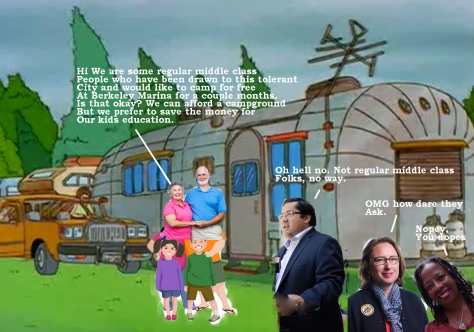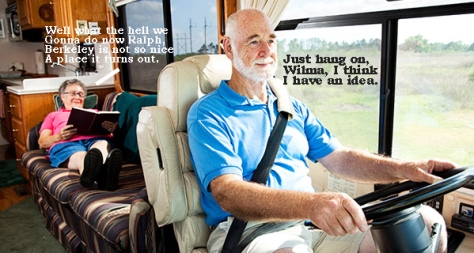The Torch has been passed, from the East Coast to the West.
Not like the brazen giant of Greek fame,
With conquering limbs astride from land to land;
Here at our sea-washed, sunset gates shall stand
A mighty woman with a torch, whose flame
Is the imprisoned lightning, and her name
MOTHER OF EXILES. From her beacon-hand
Glows world-wide welcome; her mild eyes command
The air-bridged harbor that twin cities frame.
“Keep, ancient lands, your storied pomp!” cries she
With silent lips. “Give me your tired, your poor,
Your huddled masses yearning to breathe free,
The wretched refuse of your teeming shore.
Send these, the homeless, tempest-tost to me,
I lift my lamp beside the golden door!”
— Emma Lazarus, poem of the Statue of Liberty




See whole cartoon as a PDF document:


About time somebody called it for what it is – “squatting”!
LikeLike
Alice,
The (rather offensive and) clearly uninformed content of your fictional opinion comic is divisive, at best.
Had you actually spent any time trying to interact with the people who dwell within the vehicles that you photographed, you would see the error of your assertions.
If you actually take the time to get to know the people who are homeless in this area, you will see that there are easily as many middle-class-like vehicle-dwellers as there are people who have been less fortunate throughout their lives.
Times are hard, and they are getting harder.
The line between the haves and the have-nots is blurring more and more, every day.
LikeLike
Hi Amber and thank you for your comment. I appreciate that there are middle class people too who can end up homeless.
I think you missed the point of the comic, however. The point was to highlight how the same phenomenon can be more acceptable, or less so, depending on the terminology that is used to describe it. Describing people as “homeless” tends to garner far more empathy for them than referring to them by other words or terms, or simply describing what they want.
So the same family is seeking the same situation in both instances, and the City Councilmembers are showing far more openness to the family when they describe themselves as “homeless”, than when they do not use that term. The point of the comic is to suggest how the term “homeless” just might be susceptible to manipulation or exploitation, as well as to indicate that some people may have a lot of difficulty saying “no” to people when the ones who are asking for something describe themselves as “homeless.”
LikeLiked by 1 person
How else would/could/should someone describe/refer to someone who has no legal, stable, habitable place in which they dwell, other than “homeless”?
LikeLike
I wrote an article about this issue previously, here:
Where I advance some questions about the term “homeless”, and suggest it may not be the best term to use in all situations, and that it may not be accurate or even truthful in some situations.
I really dont’ like to spend a lot of time explaining a joke or a cartoon — because, well, the point of creating a cartoon was to make a point more clearly or more eloquently, than can often be done using an explanation.
But if you look at the cartoon again, you’ll see that the RV Family using the term “homeless” here, is not using it accurately or honestly.
What I’m getting at is that I see a need to start parsing things out and exploring some of the nuances involved.
LikeLike
Here’s a YouTube video /news story which suggests that things may not always be as they seem — some homeless are really homeless, others are apparently “not so homeless” ….
The video brings up a somewhat different issue from the point I was making in the other article — and yet, there is still the need to bring critical thinking to all aspects of the Homeless Quandary and not just look at things at face value. There are many levels of complexity to this issue.
LikeLike